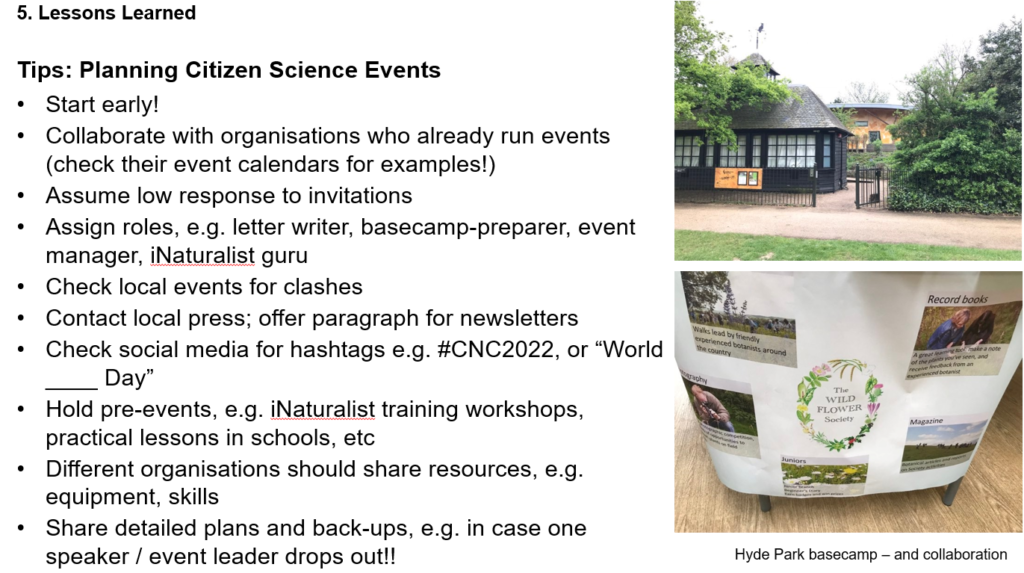Training: Event Planning for Citizen Science

As a follow-on from the UCL training event “Introduction to City Nature Challenge”, Alice Sheppard at UCL gave another 30 minute webinar: “Event Planning for Citizen Science”. This tied in nicely with the City Nature Challenge event; participants were given the option of coming to either talk or both, and most chose to stay for both.
A citizen science event, in this case, was treated as a public event in some outdoor space such as a park or public garden, in which local residents including children might have fun, learn some science and more about their local area (and contribute knowledge of their own!), and record some data such as of wildlife or for example of light or water pollution. As with all of Alice’s talks, she encouraged participants to chat with each other on the Zoom chat and to contribute experiences of their own regarding event planning.
The talk focused largely on City Nature Challenge type events, but also had some other suggestions. For City Nature Challenge, we went through examples not just of event types (birdwatching, bat walks, pond dipping, children’s challenges to “find this”, tree tours, family days out …) but also examples of organisations it is good to work with (research groups, student societies, community organisations, wildlife groups, schools and educational institutions).

Alice showed the webinar participants some slides of “What went well … and what didn’t”. For example, a conservation group in a marginalised area did especially well in City Nature Challenge and was mentioned in the local paper, and some residents reported a new pride in and knowledge of their local area. What went less well was a low response rate to invitations, unpredictability of weather and people’s availability, the lack of public knowledge of (and familiarity with) events like this, clashes with other events such as the London Marathon, and objections from some residents such as “this isn’t rigorous so it’s not really science”. All of these were perfectly understandable – the main ways around them were early planning, involvement of local community organisations (and support of these organisations’ own events!), familiarity with the area, backup and sharing of all plans in case of drop-outs, and creating formal or informal roles within your event team such as basecamp runner, food supplier, technical support guru, talk-giver, publicity person!
We ended with some examples of other events, such as stargazing or light pollution recording at night in a park, and more tips – for example, forming a two-way supportive relationship with local organisations, and bringing props such as telescopes to these events. It’s very moving to hear an adult remark excitedly that they’d never expected to see Jupiter’s moons and to see the smiles on people’s faces, and to see people learning new ways of contributing data and getting something out of these events for themselves.

